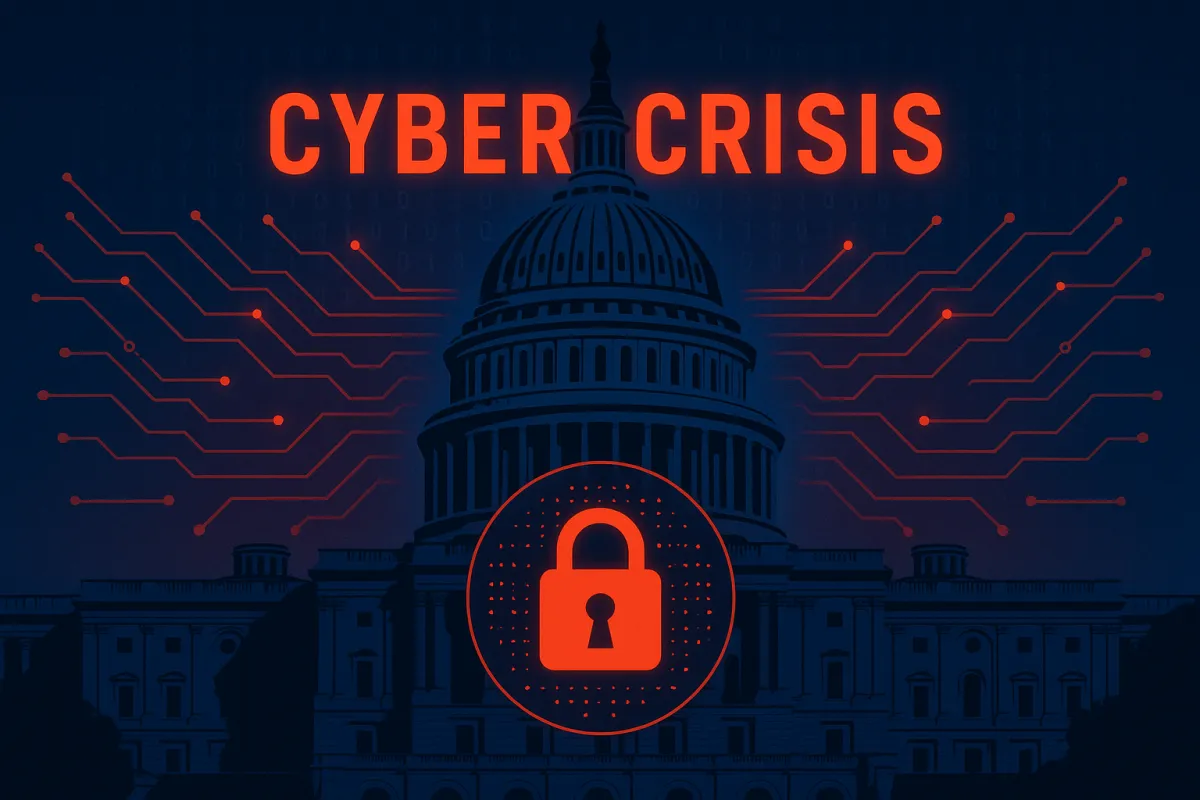
The U.S. Cyber Crisis No One’s Talking About
The U.S. Cyber Crisis No One’s Talking About
As 2025 draws to a close, the United States is facing a cybersecurity crossroads. A prolonged federal government shutdown has forced the Cybersecurity and Infrastructure Security Agency (CISA) to furlough much of its workforce, while the Cybersecurity Information Sharing Act of 2015 (CISA 2015) is set to expire on September 30 with no confirmed reauthorization. These two developments have created real concern across the cybersecurity community about how well the country can detect, share, and respond to threats. In this post, we examine what’s happening, why it matters, and what steps businesses should take to protect themselves during this uncertain time.
Why This Moment Matters
In late 2025, the United States is facing a rare cybersecurity pressure point. Two developments have cast serious questions about the resilience of national cyber defense:
The ongoing federal government shutdown has forced the Cybersecurity and Infrastructure Security Agency (CISA) to furlough much of its workforce.
The Cybersecurity Information Sharing Act of 2015 (CISA 2015) is set to expire on September 30, 2025, with no confirmed reauthorization in place.
Together, these events could weaken threat detection, delay response coordination, and chill the sharing of critical cyber intelligence between the private sector and government.
What We Know
CISA Workforce Reductions
Some reports project that about 65 % of CISA’s personnel may be furloughed. While agency leadership states that critical national security functions will continue, these cuts reduce capacity for monitoring, coordination, and outreach.
Expiration of CISA 2015
CISA 2015 is scheduled to expire on September 30, 2025. That law currently provides liability protections for private entities that share cyber threat indicators with federal agencies and with each other. Industry groups warn that without those protections, organizations may hesitate to share timely threat data, reducing collective situational awareness.
It’s worth noting that Congress has proposed a short-term extension. A continuing resolution passed by the House would extend CISA 2015 until November 21, 2025. Whether that extension becomes law remains uncertain.
What This Means for National Cybersecurity
Reduced Monitoring & Response Capacity
Fewer staff means longer detection times and slower coordination across agencies and sectors.Diminished Private–Government Collaboration
Without legal liability protections under CISA 2015, some organizations may reduce voluntary sharing of cyber threat information.Greater Opportunity for Attackers
Gaps in coverage, oversight, and intelligence sharing create windows that threat actors may exploit.Strain on Critical Infrastructure
Agencies overseeing sectors like energy, water, transportation, and health may lose support or coordination from CISA just when they need it most.
What Businesses Must Do Now
1. Assume Intelligence Gaps
Expect delays in alerts or coordination from federal sources. Build internal threat detection and response capabilities.
2. Formalize Private Sharing
Teams should document how they will responsibly share threat indicators with industry peers or Information Sharing & Analysis Organizations (ISAOs).
3. Harden Defenses
When oversight is weaker at the federal level, your own security controls, monitoring, and segmentation become even more critical.
4. Plan Inside the Uncertainty
Build resilience for periods without external support. Run tabletop exercises that assume limited coordination with government partners.
5. Advocate for Reauthorization
Industry organizations and corporate leaders should pressure lawmakers to renew CISA 2015 before the expiration deadline. (For insight into how U.S. defense policies are evolving around cybersecurity compliance, see our post The Pentagon’s Cybersecurity Mandate: CMMC Is Now a Must.)
Final Word
We are witnessing a rare alignment of political gridlock and cyber risk. A shuttered agency and the expiration of a foundational law can leave strategic blind spots in national defenses. The private sector cannot wait for backup — it must step forward now.
In cybersecurity, opportunity favors the prepared. Don’t wait for threats to capitalize on cracks in the system.
Call to Action
Want help assessing whether your organization is prepared for reduced coordination or intelligence sharing? Mike Wright, The Security Guru, assists businesses in building resilient security that works even when federal systems falter. Contact him at security.guru/contact.
